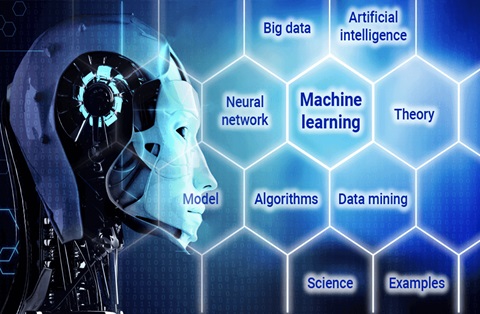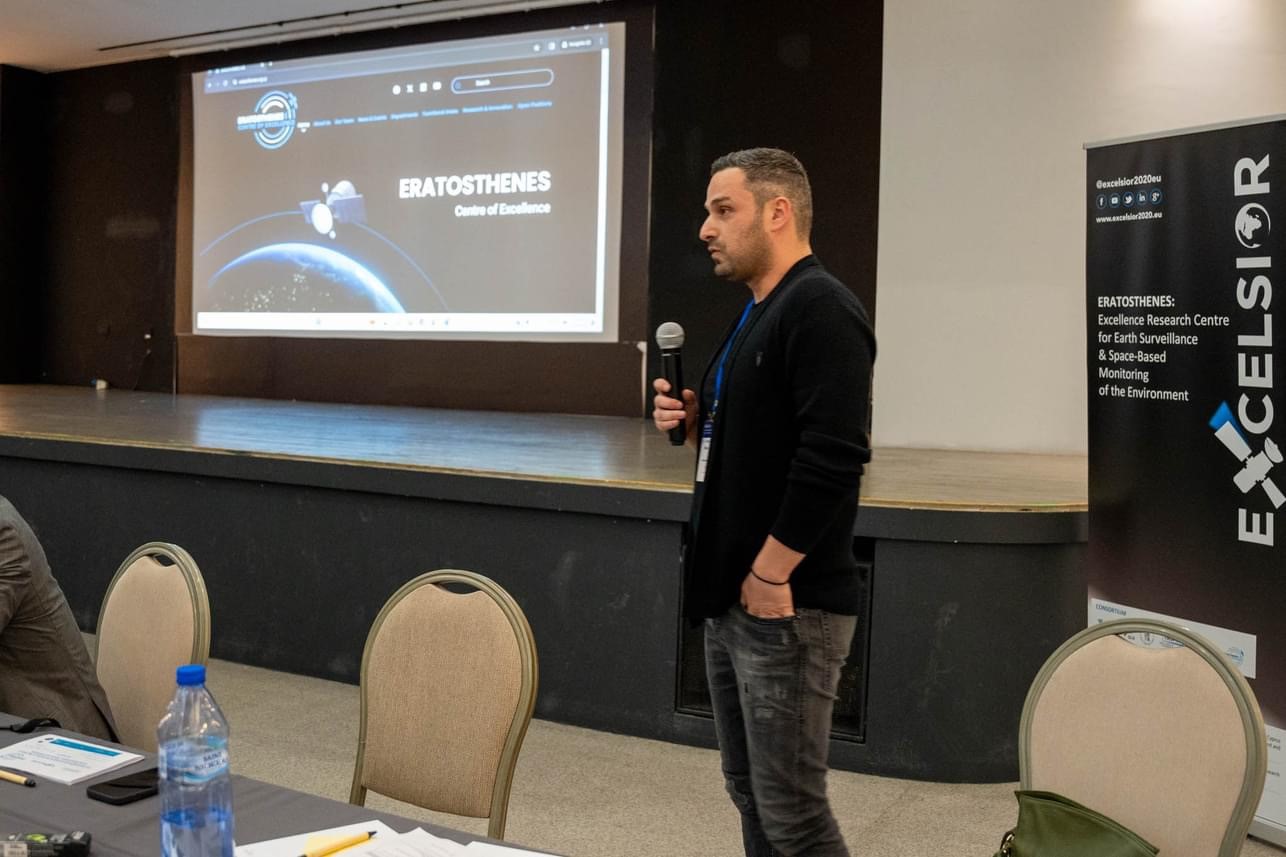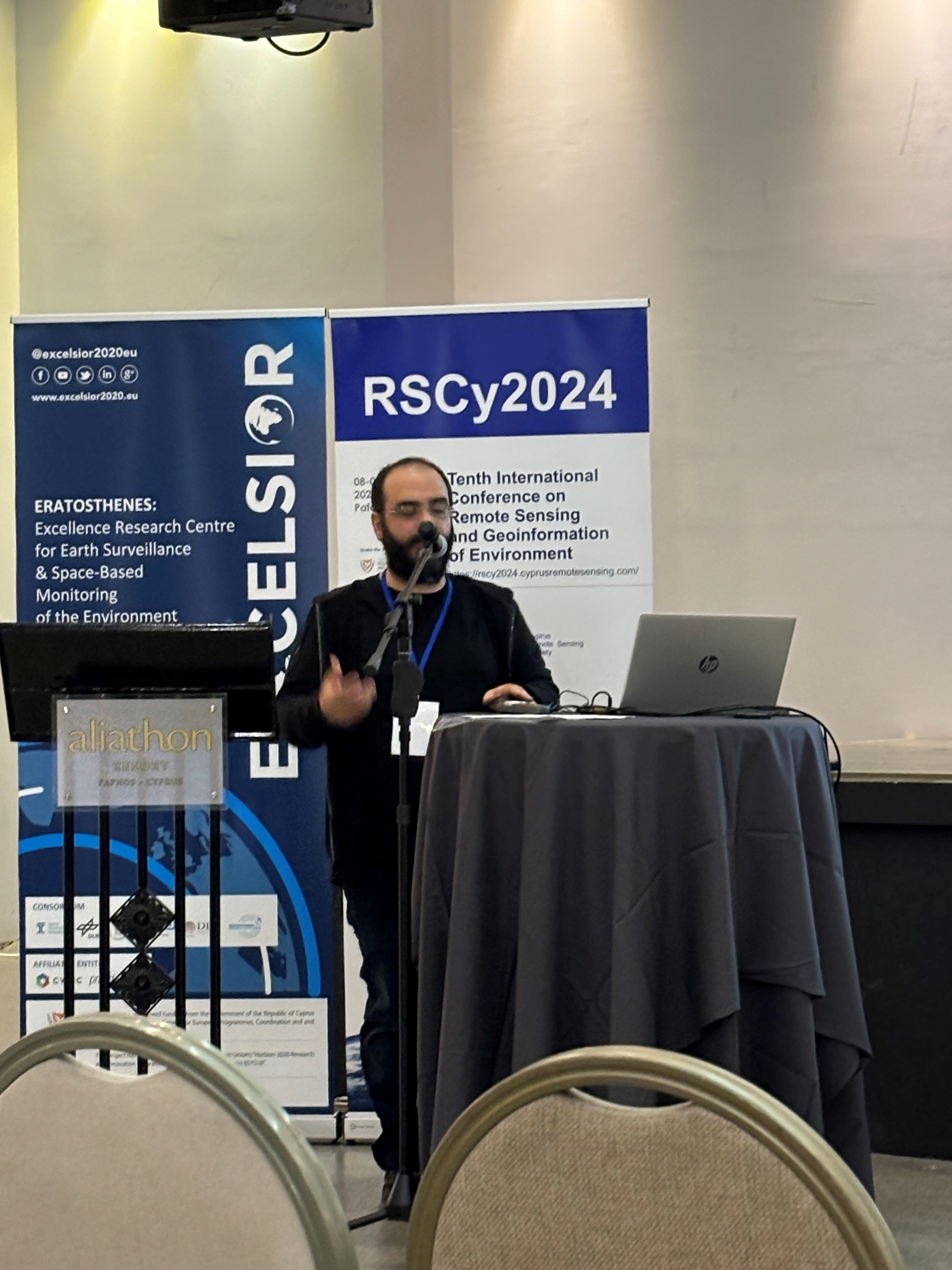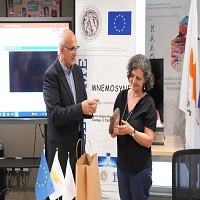The continuous technological advancement of the last decade has significantly contributed to the science of Earth observation through satellite, aerial, and ground-based means, making it a useful tool for decision making in many fields. Through the activities of the ERATOSTHENES Centre of Excellence, one area that is developing is Big Earth Data Analytics, through its namesake department.
The goal of the department is to develope Artificial Intelligence models and methodologies aiming to improve the accuracy in decision-making and prevention of risks, both natural and otherwise, such as the climate crisis, wildfires, landslides, earthquakes, and atmospheric pollution. Additionally, within the department's activities, the development of innovative algorithms, large Big Earth Data pipeline models, and the creation of satellite data storage infrastructure are included.
Subfields of Artificial Intelligence such as machine learning, artificial neural networks, evolutionary algorithms, swarm intelligence, or even hybrid models, combined with easier access to large volumes of data, create prospects for the development of highly accurate intelligent systems for Earth observation.
Within the framework of the 10th International Conference on Remote Sensing and Geoinformation of Environment, co-organized by the ERATOSTHENES Centre of Excellence, the project "EXCELSIOR" of the Cyprus University of Technology, and the Cyprus Remote Sensing Society, the 5th annual EXCELSIOR workshop titled "Artificial Intelligence and Big Data in Earth Observation: Trends and Challenges" took place in Paphos on April 8th and 9th. It was chaired by Dr. Michalis Mavrovouniotis, deputy coordinator of the Big Earth Data Analytics Department of ERATOSTHENES.
During the workshop, researchers from the ERATOSTHENES Centre of Excellence, NEAPOLIS University Paphos, the Cyprus Institute, Cyric company, Norwegian University of Science and Technology, University of Rome "Tor Vergata," German Research Center for Artificial Intelligence (DFKI), and the National Observatory of Athens presented. The presentations were focused on different topics including, new technologies for managing Big Earth Data, new machine learning techniques, explainable Artificial Intelligence, and natural disaster management using remote sensing data.
Επίσκεψη Αντιπροσωπείας Ευρωπαϊκής Επιτροπής στο ΤΕΠΑΚ
The continuous technological advancement of the last decade has significantly contributed to the science of Earth observation through satellite, aerial, and ground-based means, making it a useful tool for decision making in many fields. Through the activities of the ERATOSTHENES Centre of Excellence, one area that is developing is Big Earth Data Analytics, through its namesake department.
The goal of the department is to develope Artificial Intelligence models and methodologies aiming to improve the accuracy in decision-making and prevention of risks, both natural and otherwise, such as the climate crisis, wildfires, landslides, earthquakes, and atmospheric pollution. Additionally, within the department's activities, the development of innovative algorithms, large Big Earth Data pipeline models, and the creation of satellite data storage infrastructure are included.
Subfields of Artificial Intelligence such as machine learning, artificial neural networks, evolutionary algorithms, swarm intelligence, or even hybrid models, combined with easier access to large volumes of data, create prospects for the development of highly accurate intelligent systems for Earth observation.
Within the framework of the 10th International Conference on Remote Sensing and Geoinformation of Environment, co-organized by the ERATOSTHENES Centre of Excellence, the project "EXCELSIOR" of the Cyprus University of Technology, and the Cyprus Remote Sensing Society, the 5th annual EXCELSIOR workshop titled "Artificial Intelligence and Big Data in Earth Observation: Trends and Challenges" took place in Paphos on April 8th and 9th. It was chaired by Dr. Michalis Mavrovouniotis, deputy coordinator of the Big Earth Data Analytics Department of ERATOSTHENES.
During the workshop, researchers from the ERATOSTHENES Centre of Excellence, NEAPOLIS University Paphos, the Cyprus Institute, Cyric company, Norwegian University of Science and Technology, University of Rome "Tor Vergata," German Research Center for Artificial Intelligence (DFKI), and the National Observatory of Athens presented. The presentations were focused on different topics including, new technologies for managing Big Earth Data, new machine learning techniques, explainable Artificial Intelligence, and natural disaster management using remote sensing data.







